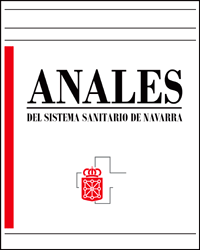La efectividad de la detección precoz de las enfermedades
Resumen
La prevención secundaria de las enfermedades a través de la detección precoz de las enfermedades y su consecuente tratamiento precoz, dentro de una estrategia individual para la prevención de las enfermedades es una práctica ampliamente extendida en la última década en el ejercicio clínico tanto en atención primaria como atención especializada. Del mismo modo existen demandas por parte de los profesionales y de los ciudadanos para que desde los sistemas sanitarios se oferten programas y actividades de prevención. En la aplicación de pruebas diagnosticas en personas asintomáticas conocido como screening o cribado de enfermedades se derivan diferentes consecuencias tanto de carácter técnico como asistencial, de sobrecarga de trabajo y económicas en los servicios sanitarios, tanto si la práctica de detección precoz es por indicación individual sistemática o por decisión de salud pública. Es necesario reflexionar sobre la necesidad y oportunidad de tales prácticas preventivas, discerniendo aquellas actividades que reúnen condiciones de acuerdo a los principios técnicos y de evidencia científica o si por el contrario se realizan por rutina, simple complacencia o por puro empirismo. Es por ello que se analiza las diferentes fases y comprobaciones previas que el profesional sanitario debe de considerar ante la aplicación del amplio arsenal diagnóstico y terapéutico con fines preventivos.Descargas
Descargas
Publicado
Cómo citar
Número
Sección
Licencia
La revista Anales del Sistema Sanitario de Navarra es publicada por el Departamento de Salud del Gobierno de Navarra (España), quien conserva los derechos patrimoniales (copyright ) sobre el artículo publicado y favorece y permite la difusión del mismo bajo licencia Creative Commons Reconocimiento-CompartirIgual 4.0 Internacional (CC BY-SA 4.0). Esta licencia permite copiar, usar, difundir, transmitir y exponer públicamente el artículo, siempre que siempre que se cite la autoría y la publicación inicial en Anales del Sistema Sanitario de Navarra, y se distinga la existencia de esta licencia de uso.








